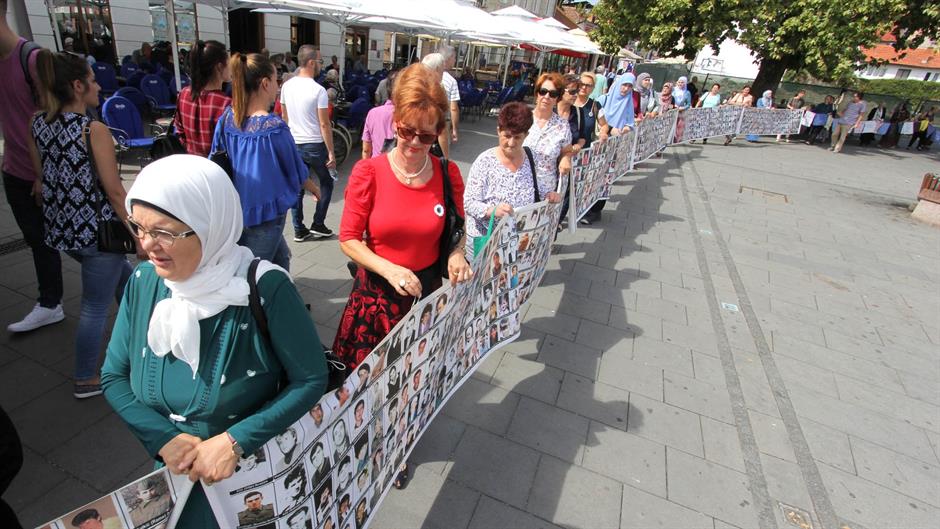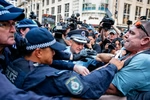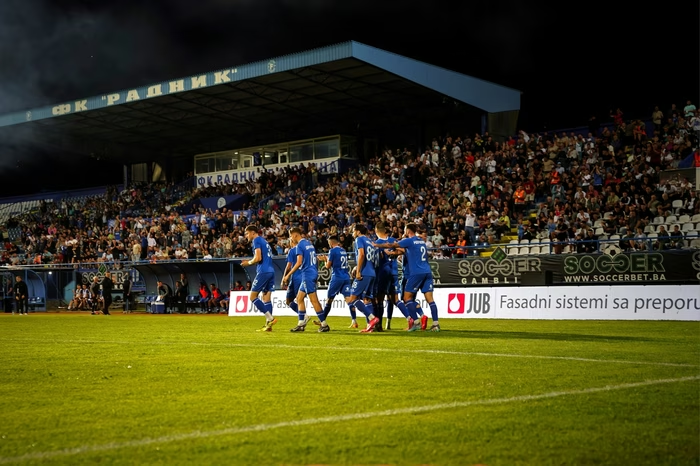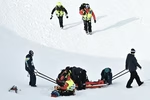
The Mothers of Srebrenica organisation said, during their Monday protest in Tuzla, they are horrified by Sunday’s controversial gathering of the Chetnik Movement members in the eastern Bosnian town of Visegrad, where some of the most horrific crimes were committed in 1992.
“I’m scared, believe me, and this reminds me of 1992. The worst thing is that not even (the Bosnian Security Minister Dragan) Mektic is doing anything about it. This is terrifying for the Visegrad returnees,” the head of the Women of Srebrenica Association, Hajra Catic, said.
The head of the Concentration Camp Detainees Association, Jasmin Meskovic, said that Visegrad events should have provoked nation-wide protests.
“There should have been gatherings and protests. We should all express our fears instead of watching and commenting on this from the comfort of our homes,” Meskovic said. “But when it comes to expressing our opinions and fears that there are genuine problems, then we hide, looking for excuses not to do anything about it.”
Last Sunday, fans and followers of the World War II nationalist Chetnik leader Dragoljub Draza Mihailovic gathered in the eastern Bosnian town of Visegrad, in a controversial annual commemoration of their leader.
Like in years before, the meeting triggered fierce reactions of those representing the Bosniak victims of the 1992-95 war.
Draza Mihailovic was a Yugoslav Serb general during the WWII, but he eventually separated and formed his own group first known as the Chetnik Detachment of the Yugoslav Army and later on the Ravna Gora Chetnik Movement, all commonly known as the Chetniks.
Being opposed to the communists, the Chetnik groups mostly collaborated with the Axis powers.
Dressed in black and wearing Chetnik insignia, some 200 members laid flowers in front of a monument dedicated to fallen Serb soldiers from the 1992-95 war.
According to Yugoslav demographers, Chetnik forces killed in WWII at least 33,000 Muslims and 32,000 Croats in one of the most gruesome episodes of Yugoslav history.
For many victims of the 1992-1995 war, Sunday’s events in Visegrad were horrifying, and Nura Begovic from the Women of Srebrenica Association recalled that people in such uniforms committed the most horrific crimes in Srebrenica.
“They introduced themselves as members of the association. Who allowed such an association to be formed, in the first place? The Human Rights Ministry, Security Ministry and all other competent institutions should have stopped this,” Begovic noted. “They should have condemned this event and punished the association. For us, the Visegrad gathering was a terrorist gathering.”
Participants of Monday’s gathering in Tuzla said these events should not be viewed as acts of individuals but as organised groups.
Kakvo je tvoje mišljenje o ovome?
Učestvuj u diskusiji ili pročitaj komentare





 Srbija
Srbija
 Hrvatska
Hrvatska
 Slovenija
Slovenija



























































